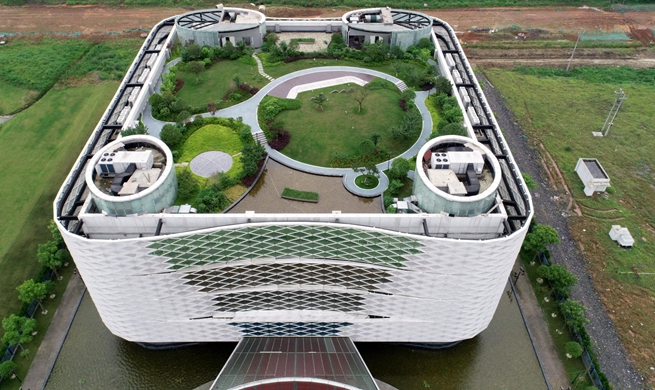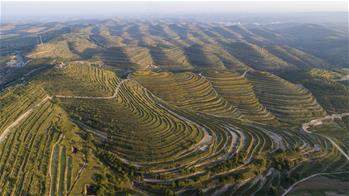by Dana Halawi
BEIRUT, Aug. 1 (Xinhua) -- Demand for residential apartments in Lebanon has seen a steep decline this year due to the economic slowdown in the country, absence of subsidized housing loans and the lack of confidence in the government, real estate developers told Xinhua.
"The real estate sector is in its worst situation ever," said Raja Makarem, chairman and founder of Ramco Real Estate Advisors.
Makarem explained that banks in Lebanon stopped giving subsidized loans, which were funded by the Central Bank of Lebanon, for people willing to buy apartments, leading to a huge decline in demand.
"Banks are only giving loans at high interest rates nowadays prompting citizens to keep their money in banks and gain a high interest rate on their deposits instead of investing in apartments," he said.
Makarem said that the banking sector has been competing fiercely with the real estate sector in attracting clients.
Banks in Lebanon have been offering a 12-percent interest rate on deposits in Lebanese pounds, and a 8-percent interest rate on dollar-denominated deposits to attract depositors.
Banque Du Liban (BDL), the central bank, has in the past offered commercial banks subsidized housing loans to ease the financial pressure on the borrowers seeking to buy homes.
However, after the cash dried up, BDL couldn't offer the same incentives, and banks stopped offering subsidized housing loans.
"Demand is very bad for small apartments. Those who want to buy flats at 200,000 U.S. dollars, for instance, will have to pay double the price today due to the high interest rates," said Mazen Moharam, CEO of Moharam and Itani Developers.
Moharam added that some people are also adopting a "wait and see" approach, thinking that prices will go down.
He said that one very important factor causing demand for apartments to slow down is the very high real estate taxation imposed by the government on purchased apartments.
"A lot of citizens have, as a result, opted for renting apartments instead of paying huge yearly amounts in taxation to the government," Moharam explained.
Developers told Xinhua that the slow demand for residential apartments led to a decline in housing prices in some cases.
Makarem attributed the drop in the prices to real estate developers' need for cash.
"Developers in need for cash tend to offer discounts on their units, but those not desperate for cash prefer to wait prices up again and then sell their apartments for higher profits," he added.
Meanwhile, Moharam said prices have gone down mostly on big apartments, considering a relatively larger margin for profits, and some developers are "too stubborn to give up on their pricing."
The slowdown in demand for apartments led also to hesitation among developers to start new projects.
According to Byblos Bank's report, new construction permits declined by 19.5 percent in the first half of 2019 compared with a year earlier.
Developers agree that the government must take a series of measures to save the sector from further deterioration, such as lowering taxes on apartments, restoring clients' confidence, and approving a new stimulus budget for the real estate sector.
General Manager of Lebanon's Public Corporation for Housing Rony Lahoud told Xinhua that the corporation has asked for a meeting with Central Bank Governor Riad Salameh to discuss the possibility of approving new subsidized loans for the sector.
"We have asked for an appointment but we did not receive any feedback yet," he said, noting that the government has lately passed a law requiring developers who have committed construction violations to pay fines, part of which will be used to give housing loans to people.
"This will allow us to give around 300 million dollars in housing loans for 2,500 citizens in less than a year," he said.

















